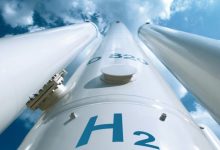Some of Australia’s leading energy experts say that renewable hydrogen is beginning to reach cost parity with some fossil fuel equivalents, and can emerge as a high potential export industry for Australia – with tens of billions of dollars – as technology costs continue to tumble.
A joint briefing held on Wednesday by experts from CSIRO, the Australian National University, and Monash University explored how Australia is ideally placed to take advantage of growing global demand for low or zero emissions hydrogen fuel, and falling technology costs that is allowing hydrogen to emerge as a cost-competitive and zero emissions fuel alternative.
Australia has a rich supply of renewable energy, including an abundant supply of solar and wind energy, and the findings echo that of the likes of chief scientist Alan Finkel, professor Ross Garnaut and former Clean Energy Finance Corp boss Oliver Yates, all of whom have pointed to the possibility of Australia become a renewable energy super-power.
Some private developers, such as a consortium involving CWP Renewables, Macquarie Group, Vestas and others, are looking to build up to 11GW of wind and solar in the north-wet of W.A., much of it to provide for renewable hydrogen exports. Others talk of potential arrays in the “tens of gigawatts” to bring down the cost of solar even further.
The idea is to use excess renewable energy – or arrays specifically designed and built for the purpose – to produce renewable hydrogen through the splitting of water through electrolysis. Through the use of renewable energy, so-called green hydrogen can be produced with effectively zero greenhouse gas emissions.
Existing export supply chains, including the supply of gas to regional neighbours in Japan and South Korea, provide a high potential market into which Australia can export hydrogen, the experts say.
Japan and South Korea have invested heavily in developing role of hydrogen as part of their future economies, with the 2020 Tokyo Olympics set to use hydrogen to power the Olympic flame and power public transport. Queensland is also pursuing hydrogen deals with Japan, with planning minister Cameron Dick visiting to sign various deals.
Professor Ken Baldwin of ANU’s Energy Change Institute told the media briefing on Wednesday that renewable hydrogen fuels have enormous potential to replace or supplement Australia’s fossil fuel exports.

“Australia has a lot of renewable energy, and there is a prospect that we could replace exports of fossil fuels with exports of renewable energy. One of the storage media we could use for exporting renewable energy could be hydrogen.” Baldwin told the briefing.
“In other words, you use solar and wind to create electricity, the electricity is used in electrolysis to produce hydrogen and you can ship that overseas to countries like Japan or South Korea that already have a very large program based around hydrogen as part of their future economies.”
“For the first time we’ve got real strong global pull for imported, low-carbon hydrogen. Japan has got this as central to their energy strategy, Korea has a roadmap and Europe is really moving forward fast” Leader of the CSIRO Hydrogen Energy Systems Future Science Platform Dr Daniel Roberts told the briefing.
“We’ve got key technology components, in particular fuel-cells and electrolysers and the cost of renewable electricity coming down to a point where we are seeing them approach, and in some cases reach parity with some of the systems they are seeking to replace.”
Roberts noted that global demand for hydrogen has been predicted to ten-fold between now and 2050 growing to the equivilant around one-fifth of current energy use, with demand coming from multiple sectors across the economy, including for industrial processes, and building heat and power, along with electricity energy storage and transport fuels.

The potential of hydrogen fuels to emerge as a major component of the Australian economy has been recognised through strategic investments in developing technologies and industry capacity, including a hydrogen vehicle and refuelling trial by the ACT Government, and a total of 16 new hydrogen projects receiving funding support from the Australian Renewable Energy Agency.
Finkel is currently chairing the Hydrogen Strategy working group, which has been tasked by the COAG Energy Council to develop a plan for Australia’s hydrogen economy.
The working group released a report in the second half of 2018 which said that with the right policy settings in place, Australian hydrogen exports could grow to $1.7 billion by 2030, and create up to 2,800 new jobs.
The expert opinion has been tempered slightly by the recent release of a white paper by major consultancy firm Jacobs, also released on Wednesday. In its new report, Jacobs has said Australia may need to adapt its methods for hydrogen production to secure its place in a sustainable and viable hydrogen economy.
Jacobs has received two potential models for hydrogen in Australia; the “current” model of producing hydrogen through electrolysis using grid electricity and drinking water, and a “proposed” model that would use renewable energy and recycled water.

“Australia’s pursuit of a large-scale hydrogen economy could represent a trade-off between environmental sustainability and economic viability if the current electrolysis-based hydrogen supply chain model is adopted” the report noted.
Current practises of using fresh-water for hydrogen production was singled out by Jacobs as putting significant pressure on already stretched water supplies in Australia, but saw the alternative supplies, particularly through the use of recycled water, as providing an economic alternative, that would mitigate water supply pressures.










